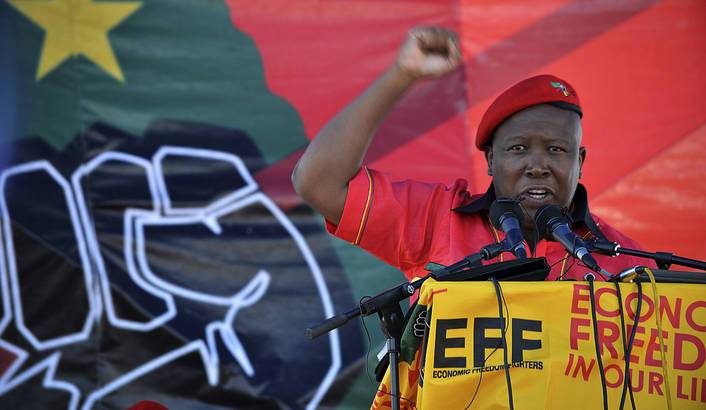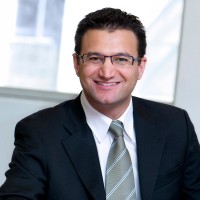Instead, “fake news” or disinformation, is news which the publisher knows is false, or is reckless as to whether it is true or false. Publishers who know they are publishing false news or are reckless about it, do not enhance any of the rationales for protecting free speech in our democracy. This is because lies do nothing to enhance truth-telling, individual autonomy or participatory democracy.
In the 17th century, the writer John Milton thought that the best way to deal with falsehoods was to leave them be; the truth would always out:
And though all the winds of doctrine were let loose to play upon the earth, so Truth be in the field, we do injuriously by licensing and prohibiting to misdoubt her strength. Let her and Falsehood grapple; who ever knew Truth put to the worse, in a free and open encounter.
If such an approach was ever acceptable, it is certainly entirely out of place in our modern digital age. The reach and potency of disinformation means truth is frequently a casualty of our public discourse. One need look no further than the frequent tweets of the president of the United States to prove the point.
Given its findings, the judgment handed down by the Johannesburg High Court on 30 May 2019 in the case of Trevor Manuel v Economic Freedom Fighters and Others ([2019] ZAGPJHC 157) can be viewed as a significant victory against fake news. It shows that there is a place for the law to hold those who publish fake news accountable. And it shows that the law has real bite when it comes to redressing the harm fake news causes to one’s dignity and reputation.
Background
 The facts of the case begin with the recommendation of the Nugent Commission that a new commissioner of the South African Revenue Services be appointed by the President to replace Tom Moyane. Judge Nugent recommended that candidates for appointment should be submitted to a private interview by a panel of members selected by the president. The panel would then make a motivated recommendation to the President on the suitability for the appointment of the candidate.
The facts of the case begin with the recommendation of the Nugent Commission that a new commissioner of the South African Revenue Services be appointed by the President to replace Tom Moyane. Judge Nugent recommended that candidates for appointment should be submitted to a private interview by a panel of members selected by the president. The panel would then make a motivated recommendation to the President on the suitability for the appointment of the candidate.
The Minister of Finance announced the appointment of the panel with Manuel as its chair. The panel ultimately unanimously recommended Edward Kieswetter, and President Ramaphosa in due course accepted the recommendation.
The Economic Freedom Fighters (“EFF”) published a statement on its Twitter account, which at the time of the tweet had about 750 000 followers. Julius Malema tweeted the statement to his 2 million followers. The statement understandably was widely covered in the media. The statement stated in relevant part as follows:
The Economic Freedom Fighters objects to the patently nepotistic, and corrupt process of selecting the South African revenue services’ commissioner.
In February 2019, the EFF sent a letter, and Parliamentary questions to the outgoing President Mr Cyril Ramaphosa and Mr Tito Mboweni, to specifically ask why they are conducting the SARS selection process in secret. It is confirmed that a panel chaired by former minister, Trevor Manuel, conducted secret interviews to select the SARS Commissioner, and this goes against the spirit of transparency and openness.
It has now emerged that the reason is that, one of the candidates who was interviewed, and favoured by the panel, is a dodgy character called Edward Kieswetter, who is not just a relative of Trevor Manuel, but a close business associate and companion.
Kieswetter used to be a Deputy SARS Commissioner, unlawfully appointed to that position by Trevor Manuel, when Pravin Gordhan was SARS Commissioner.
Within a week of the statement, Manuel sent a letter demanding that the EFF undertake to desist from publishing the statement, remove it from their public platforms, and apologize. The EFF refused, and the stage was set for the legal battle that followed. A semi-urgent motion was issued forthwith.
Manuel contended that the sting of the statement is that he acted incorrectly and in a nepotistic manner in recommending Kieswetter to the President. The EFF, on the other hand, argued that the essence of the statement is their concern about the lawfulness of the appointment process. The EFF pleaded the defamation defences of truth and public interest, reasonable publication and protected comment.
Judgment
Judge Elias Matojane in the Johannesburg High Court began by referencing the trite proposition in the law of defamation that two conflicting values are at stake – freedom of expression on the one hand, and the right to dignity, on the other.
The Judge held that Manuel had satisfied the requirements for an interdict in South African law: he had a clear right to protect his dignity; had suffered and continued to suffer harm his reputation through the widespread dissemination of the statement; and had no alternative remedy given the refusal to apologise or take down the statement. There was also ongoing harm to the well-being of the country
“as the public labours under the misapprehension that SARS is led by a person who was appointed for nepotistic and corrupt reasons”.
Judge Matojane easily reached the conclusion that the statement was defamatory. The test is that of the “reasonable representative of users of Twitter who follow the EFF and Mr Malema and share his interest in politics and current affairs“. Such a reader would understand the tweet to mean that Manuel is corrupt, nepotistic and conducted the appointment process secretly in a deliberate attempt to disguise his familial relationship with Kieswetter. This understanding would undoubtedly tend to lower Mr Manuel’s reputation in society.
Moreover, said Judge Matojane, all of the EFF’s defences were unsuccessful. They had failed to prove that the sting of the statement was true – ie that Manuel was corrupt and nepotistic. Manuel had recused himself from the interview with Kieswetter and had disclosed the fact that there was once an employment association between them. This was not proof that he was biased or acted in a nepotistic manner.
The EFF also failed to show that they had published the tweet reasonably. In this context, in a major development of the law, Judge Matojane held that the reasonable publication defence is not only available to the media:
“Because of social media platforms like Twitter, Facebook and others, ordinary members of society now have publishing capacities capable of reaching beyond that which the print and broadcast media can“.
But on the facts, this development did not assist the EFF. They relied on an undated SMS from a confidential source about Manuel’s alleged relationship with Kieswetter, and had taken no steps to verify the allegations, nor given Manuel an opportunity to respond before publication.
The final defence relied upon by the EFF was just as unsuccessful – the protected comment defence failed, held Judge Matojane, because the EFF could not show the underlying facts about Manuel were true. In any event, they acted with malice, because they published “with reckless indifference as to whether it was true or false”. They also kept the statement on line despite its falsity. This showed spite and animosity.
It followed that Manuel should be entitled to remedies for his harmed dignity and reputation. The Court awarded a package of vindicatory remedies. It declared the allegations about him to be false, unlawful and defamatory; ordered the EFF to remove the statement and apologise within 24 hours; and interdicted them from publishing a similar statement in the future. The Court also awarded Manuel R500, 000 in damages (which he intends to donate to VBS pensioners who were victims of the collapse of the bank), and punitive costs. The EFF have lodged an application for permission to appeal.
Comment
The Manuel case is of great significance in South African jurisprudence. First, going by way of application and not trial proceedings afforded Manuel much quicker and meaningful relief.
Secondly, the Court’s application of basic defamation principles to social media should give pause to those knowingly, recklessly or unreasonably publishing false statements to a wide audience: there are serious legal consequences for publishing fake news. You remain accountable for your speech.
Thirdly, there will be no deleterious consequences for free speech as a result of the judgment. It has always been the case that a publisher who publishes the truth (in the public interest) or acts reasonably , or expresses opinions (even robust and extreme opinions), will be protected. We have patriots like Manuel to thank for the fact that we now have a constitutional right to free speech, and it should always be jealously guarded. This judgment does nothing to undermine that protection.
And finally, law can play a role in challenging fake news and reversing at least some of the harms the disinformation has caused. The decalaration of falsity relief, for instance, is a defamation remedy I have always thought to have great potential. It tells the public where the truth lies, and thereby corrects the public record for the good of our democracy. The law is only one tool – and an imperfect one at that – to address fake news, but the principles adopted in the Manuel case take our law in the right direction.

